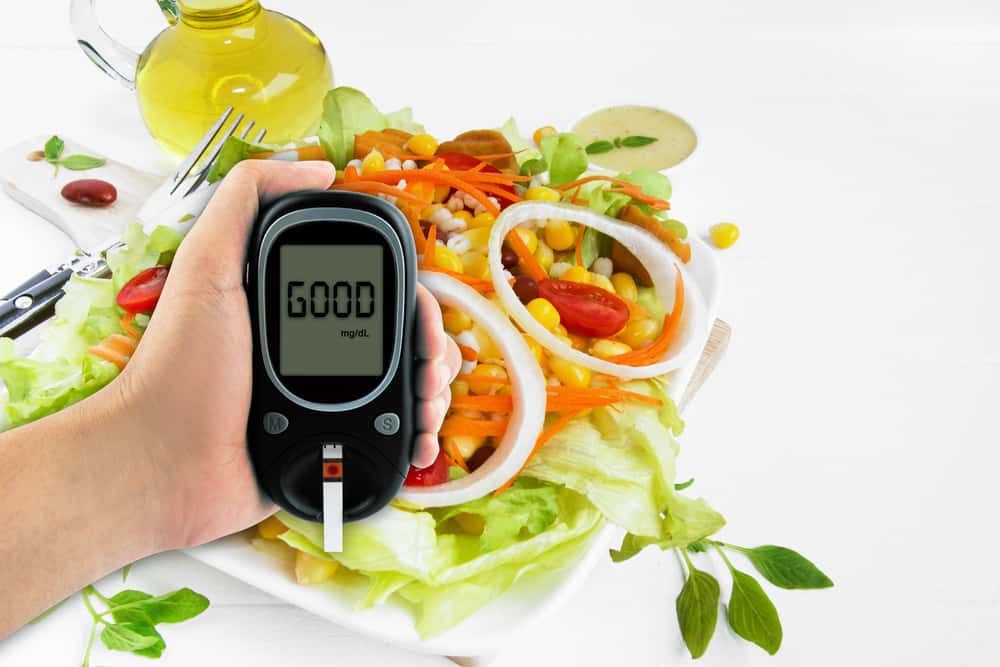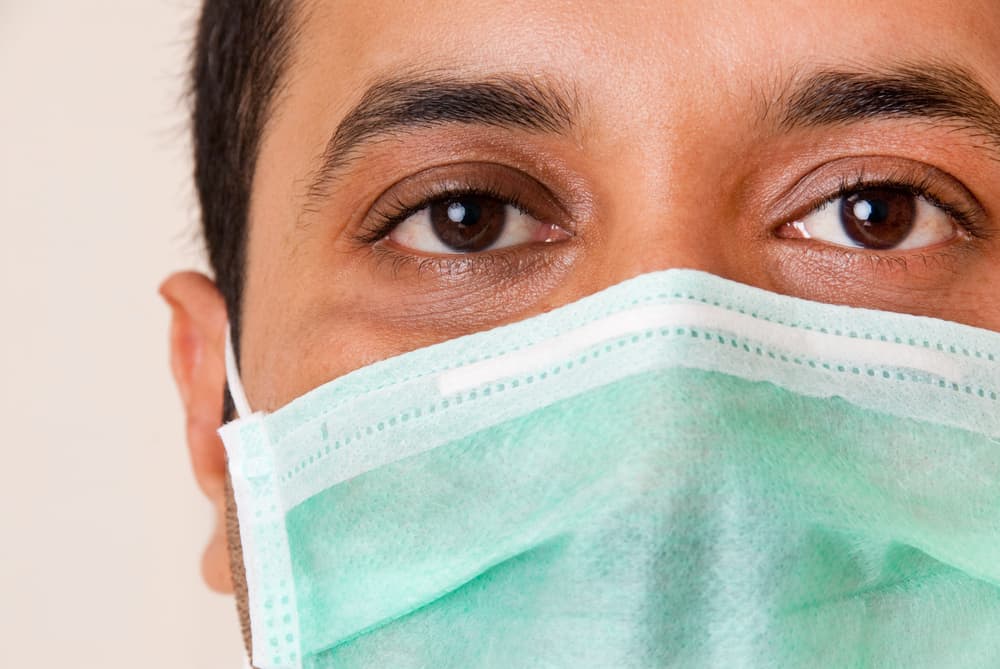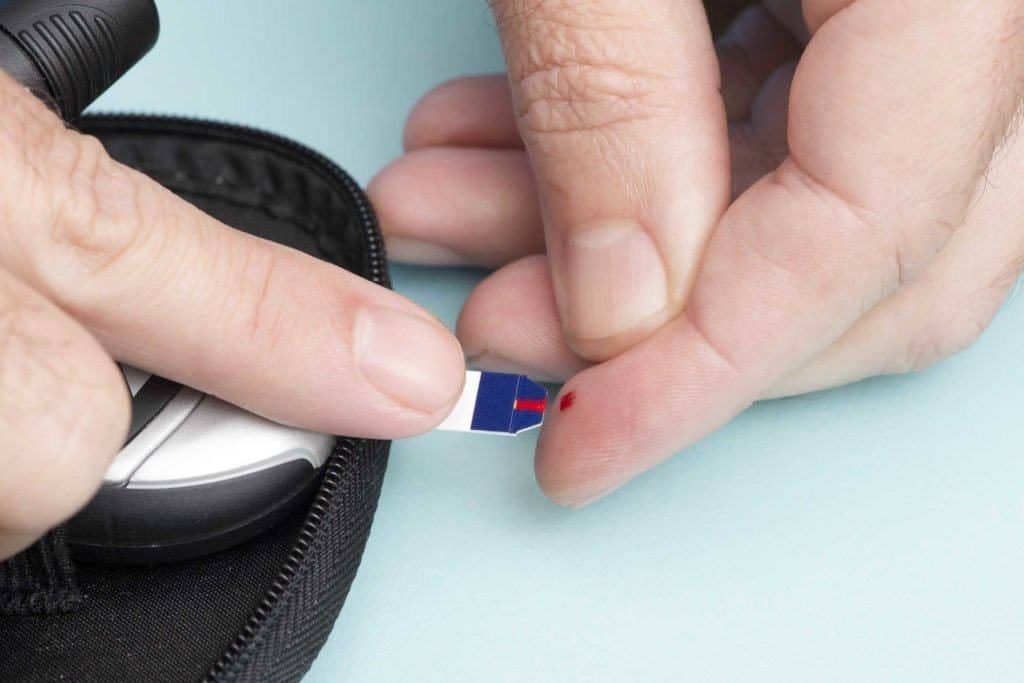Contents:
- Medical Video: Do Not Ignore These 10 Early Symptoms of Diabetes
- What is Celiac disease?
- What is the relationship between Celiac disease and diabetes?
- How can I recognize Celiac disease?
- Symptoms in children
- Symptoms in adults
- How to treat this condition?
- Do you need to go on a gluten free diet for people with diabetes?
Medical Video: Do Not Ignore These 10 Early Symptoms of Diabetes
Celiac disease, aka gluten intolerance or gluten-sensitive enteropathy is a digestive disorder. This condition is caused by an overreaction of the body's immune system to gluten. If you have diabetes, you are at high risk of Celiac disease. Why? See the full explanation in this article.
What is Celiac disease?
Gluten is a protein found in grains such as wheat (rye, or found in flour). This substance is also found in wheat which has been processed in factories and in some medicines, vitamins, and lipsticks.
In Celiac disease, the reaction of your excessive immune system to gluten creates toxins. This condition will damage the villi, small finger-like bumps in the small intestine. Damage to this part will reduce the body's ability to absorb nutrients, which ultimately increases the risk of malnutrition.
What is the relationship between Celiac disease and diabetes?
About 1 in 100 people are known to have a history of Celiac disease. However, about 10 percent of people with type 1 diabetes also have this disease. Research shows that there may be a genetic relationship between celiac disease and type 1 diabetes.
Biomarkers (certain substances) in your blood, make you more likely to experience gluten intolerance, so these factors can also increase your chances of developing type 1 diabetes. Both of these conditions have an inflammatory component that causes the immune system to attack tissues. healthy body or organ, such as the intestine or pancreas which is an insulin-producing organ.
How can I recognize Celiac disease?
Symptoms of this disease can not only involve the intestine and digestive system, but can also affect other parts of the body. Children and adults tend to have more than one pair of different symptoms.
Symptoms in children
Children with Celiac disease can be emotionally irritable. In addition, their growth also tends to be slower and not infrequently some children with this disease experience delayed puberty. They may also have permanent enamel damage to the teeth. Other symptoms of gluten intolerance in children include:
- Drastic weight loss
- Nausea and vomiting
- Bloated
- Stomach ache
- Prolonged diarrhea
- Stools that are pale, fatty, and foul-smelling
Symptoms in adults
In contrast to children, here are some symptoms of Celiac disease in adults:
- Anemia, iron deficiency
- Frequent arthritis
- Bone pain and joint pain
- Osteoporosis and fractures
- Fatigue
- Numbness and tingling in the hands and feet
- Seizures
- Thrush in the mouth
- Irregular menstruation
- Infertility and miscarriage
Dermatitis herpetiformis (DH) is another symptom of Celiac disease. DH is very itchy and usually appears on the skin of the elbows, buttocks and knees. A quarter of people with Celiac disease have DH. However, people who have DH disease usually don't have digestive symptoms.
How to treat this condition?
Removing gluten from your diet is the only treatment for Celiac disease. This allows the intestinal villi to heal and improve absorption of nutrients.
Doctors may recommend vitamins and mineral nutrients as supplements if you cannot get enough nutrition from a gluten-free diet. For some people, the use of steroid drugs for a period of time may be needed.
Symptoms can subside in a few days after you remove gluten from your diet. However, you don't have to stop eating gluten until your diagnosis is clear. Removing gluten early can cause incorrect test results.
Do you need to go on a gluten free diet for people with diabetes?
If you have diabetes but don't have a history of Celiac disease or non-celiac gluten sensitivity, you don't need to follow a gluten-free diet. This is because a gluten-free diet does not provide significant benefits when compared to other diets specifically designed for people with diabetes.
But if you have a history of diabetes and Celiac disease, you really have to eat gluten-free food. This is the only way to avoid the pain and damage caused by eating foods containing gluten, even with little gluten.
Since a gluten-free diet is a big change, you need supervision from an expert. Therefore, before taking a gluten-free diet, consult a nutritionist who specializes in treating diabetes.












